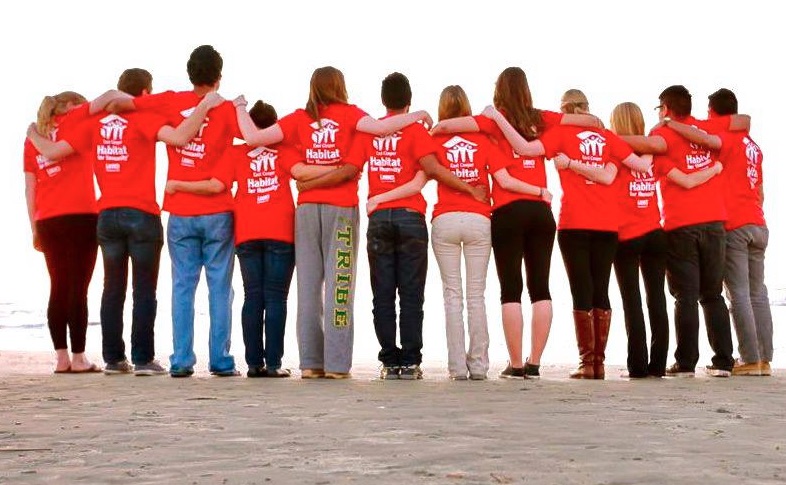When I heard about the College of William and Mary’s Branch Out alternative breaks, I was thrilled at the opportunity to try something different. Branch Out trips, organized by the Office of Community Engagement, provide an opportunity to spend a break from the school year working in a small group in partnership with a host organization on a community-driven service and social justice project. As I looked through the programs offered, I was surprised by how many opportunities there were in such a variety of issues, from education to food sustainability to improving healthcare access.
The trip I chose focused on the issue of LGBTQ youth homelessness. Leading up to the trip, we learned about how homelessness affects LGBTQ youth. A 2015 study by the Williams Institute of the UCLA School of Law estimates that at the national level, 40 percent of homeless youths identify as LGBTQ, even though they account for no more than 10 percent of overall youth. There are numerous reasons why LGBTQ youth are at a greater risk of homelessness, namely that they are more likely to experience social stigma and rejection and abuse from their families.
Our host organization was New Alternatives, a New York City-based organization with a mission statement “to increase the self-sufficiency of homeless LGBT youth to enable them to ‘go beyond’ the shelter system and transition into stable adult lives.” New Alternatives does this by providing services such as case management, life skills training, recreational activities, STI testing and support services for HIV-positive youth.
Their work in the city is particularly important, as the cost of living there is so prohibitive. According to the Center for American Progress, the average age that lesbian and gay youth become homeless in New York is 14.4, and for transgender youth, that number is even lower, at 13.5. Additionally, they are often failed by the system, as 78 percent of LGBTQ youth are either removed from or run away from their foster care placements due to conflict and discrimination related to their sexual orientation or gender identity.
Over the course of this week, I learned that the importance of providing safe spaces and making resources available to LGBTQ homeless youth cannot be understated.
During my time at New Alternatives, it was jarring to see such a disproportionately high amount of clients being transgender women of color, to hear clients often talk about abusive situations they routinely experience and to hear clients casually joke about the sex work many of them often rely on to survive. Over the course of this week, I learned that the importance of providing safe spaces and making resources available to LGBTQ homeless youth cannot be understated. Even the youngest clients were exposed to these problems, and I realized how privileged I am to have been raised in an environment that provided me with a support system that the people at New Alternatives did not have.
As we reflected on our experiences as a group at the end of each day, we realized that as positive as our intentions were, we were getting so much more out of this experience than the clients we were helping could possibly get from us because of how much we learned. For students hoping to make their breaks meaningful, I urge them to take advantage of the opportunities Branch Out provides.
And while this was certainly an incredible learning opportunity, I can’t let this be where my involvement ends. One of the clients we had the chance to meet, upon learning we went to the College, urged us to use our experience to bring a revolution to Virginia.
Nothing separates these people from us but circumstance, and we must recognize our common humanity.
That revolution starts with doing all we can to make this problem a thing of the past. It starts with making sure the homeless are not talked about as something subhuman. It starts with making sure the LGBTQ youth community is not blamed for the abuses it experiences, and with urging the government not to ignore the people that need its resources the most, and to push for programs that can help them. Nothing separates these people from us but circumstance, and we must recognize our common humanity.
Contact Leonor Taylor Grave at lgtaylorgrave@email.wm.edu

